News
Archaeology ‘pop up’ shops feature ‘incredible’ finds from A428 £1bn scheme
The public can see the past come to life through an immersive VR experience

Two free events, taking place in Bedford and St Neots this March, will enable the public to explore the archaeological discoveries from the £1billion National Highways A428 Black Cat to Caxton Gibbet scheme. It involves a new dual carriageway to reduce congestion and improve journey times between Milton Keynes and Cambridge.
Activities include a display of real artefacts, ancient craft demonstrations, and an immersive VR experience developed exclusively for the scheme.
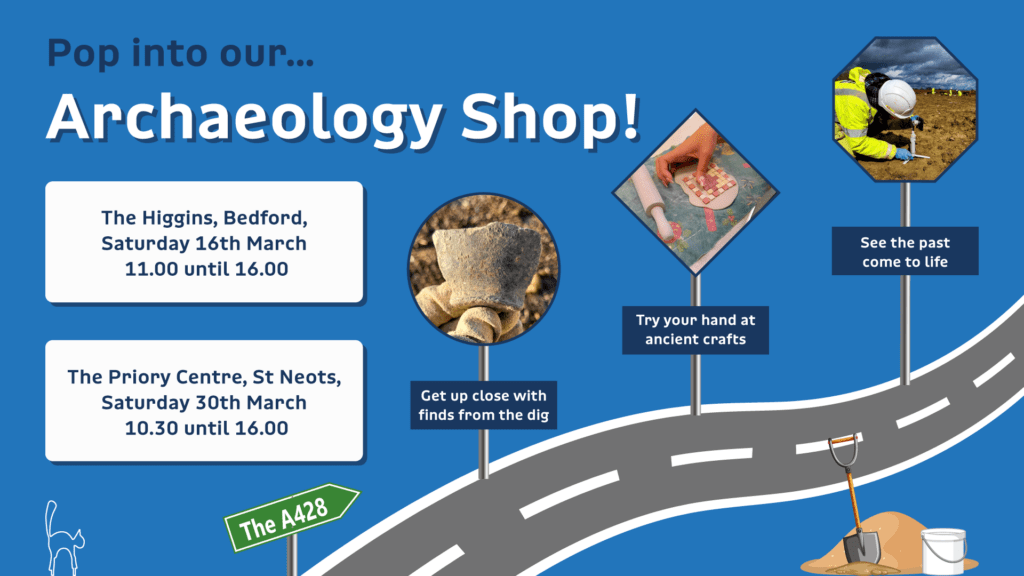
Archaeology Shop Event Promo
Events are suitable for all the family with no pre-booking required.
Hosted by MOLA (Museum of London Archaeology) who are leading the excavations across the scheme, the shops will feature a display of real archaeological artefacts from the dig, as well as a chance to chat to specialists working on the finds.
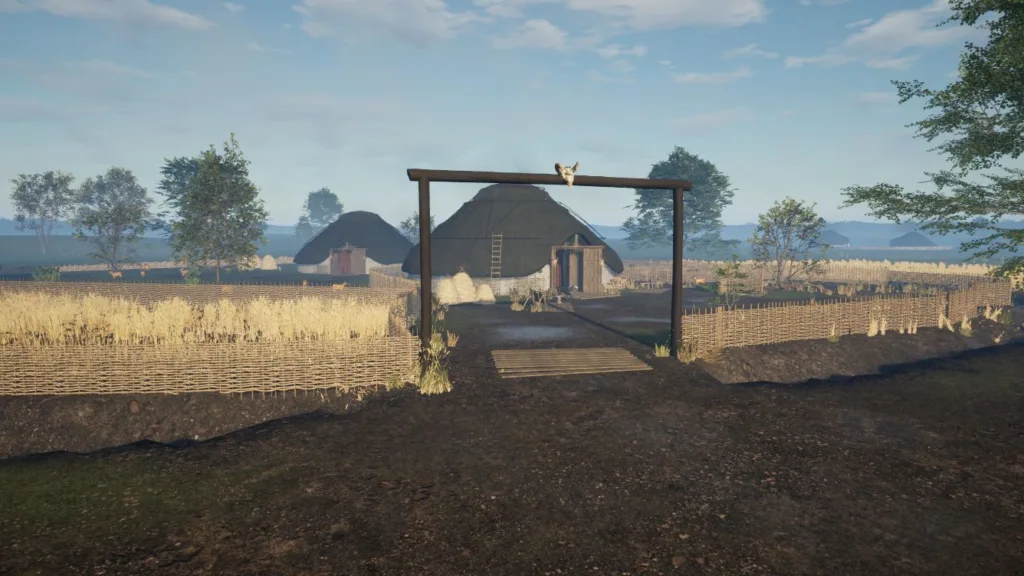
CGI reconstruction of an Iron Age village from the A428 ©MOLA
The public can also challenge themselves to see whether they have what it takes to survive in Iron Age Britain.
The MOLA team will be joined by experts from Butser Ancient Farm who will demonstrate how people spun yarn in the past and wove their clothes. In addition, visitors can have a go at ancient basket weaving and brooch making.
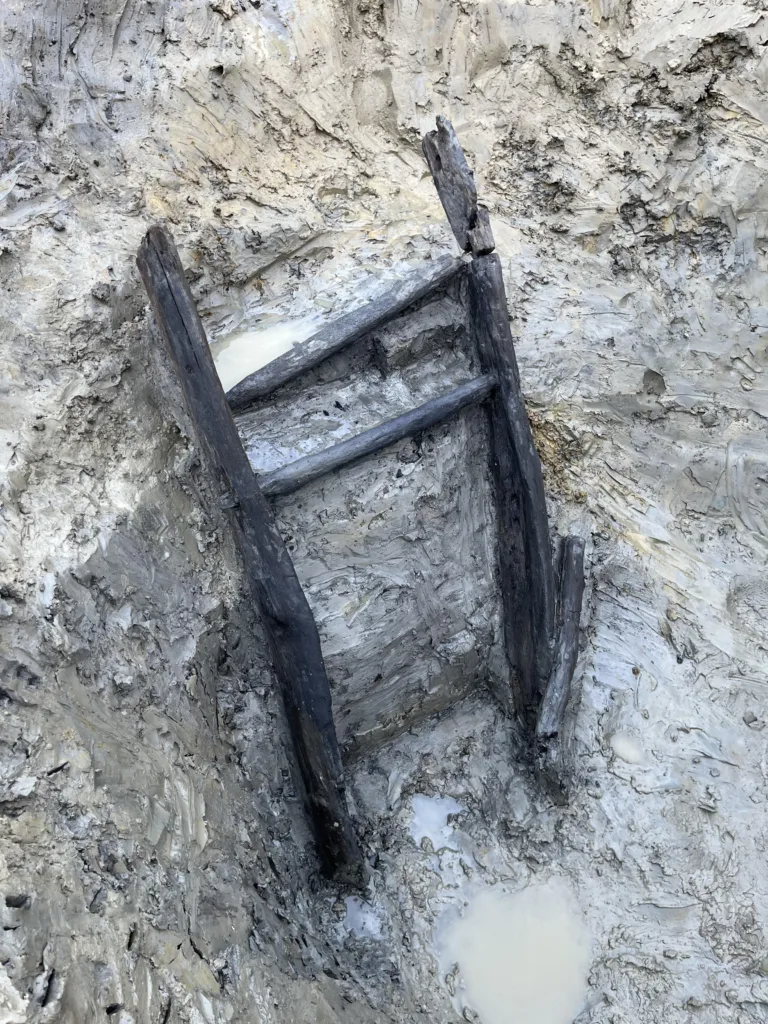
Iron Age ladder found on the A428. ©MOLA
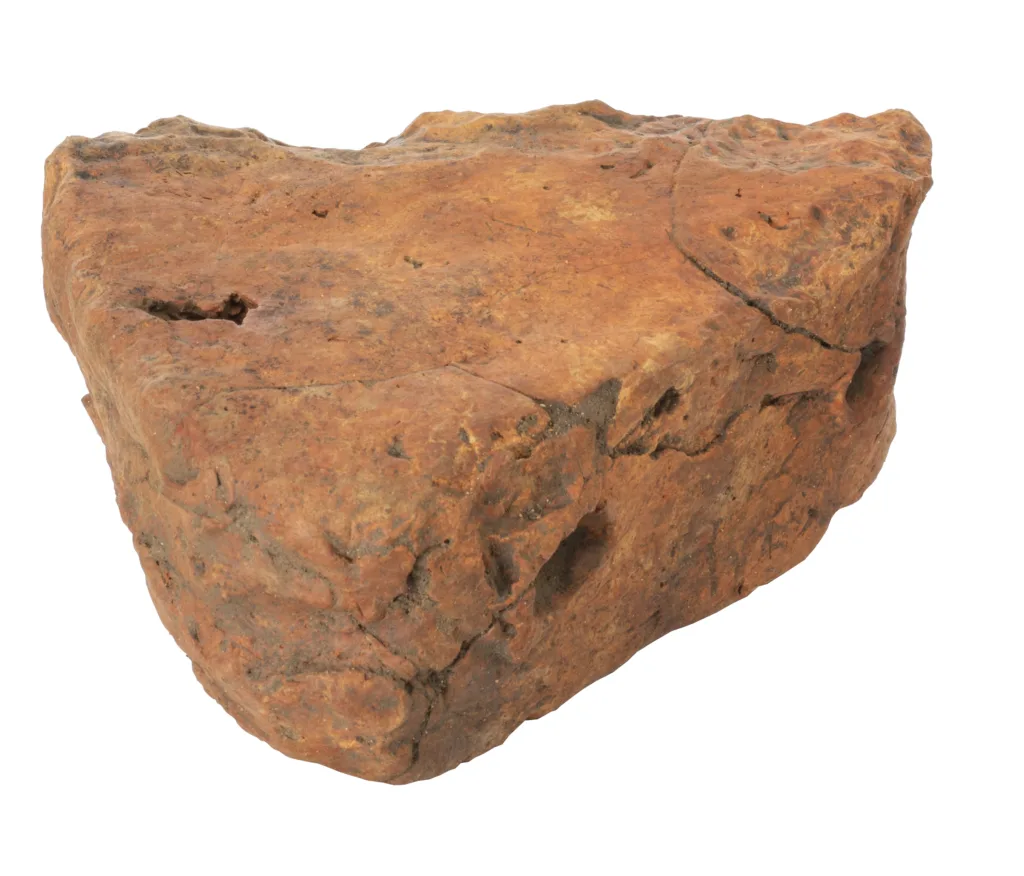
Iron Age clay loom weight found on the A428. ©MOLA
Finally, the public can see the past come to life through an immersive VR experience, developed exclusively for the A428 and modelled using details and artefacts uncovered during the ongoing excavations.
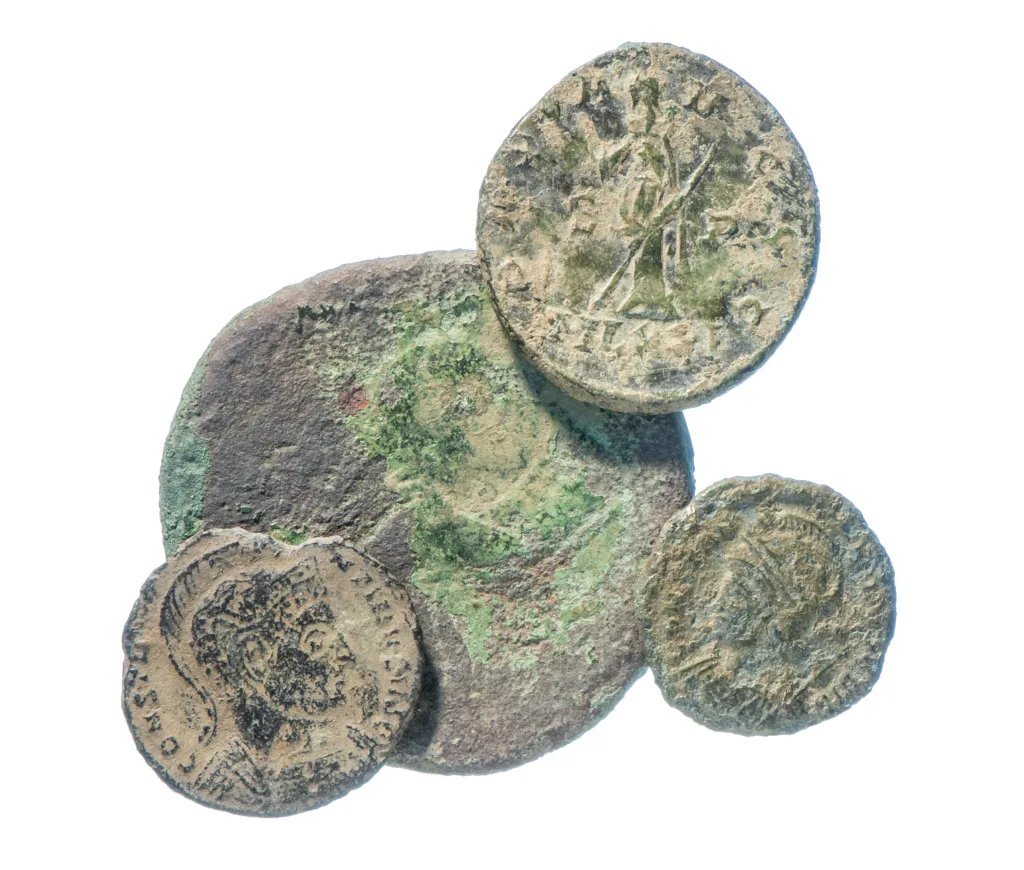
Late Roman coins found on the A428. ©MOLA
Community Engagement Officer at MOLA, Cat Gibbs, said: “The excavations along the A428 have been providing incredible insights into the way of life and wider landscape in this part of Britain over 2,000 years ago.
“We’re really looking forward to sharing these with the public and inspiring local people with the discoveries being made on their doorstep.”
Archaeologists from MOLA have been conducting excavations on the scheme since Summer 2021.
They’ve uncovered a patchwork quilt of small farming settlements and other agricultural features dating mainly from the Iron Age (800 BC – AD 43) to the Roman period (AD 43 – AD 410).
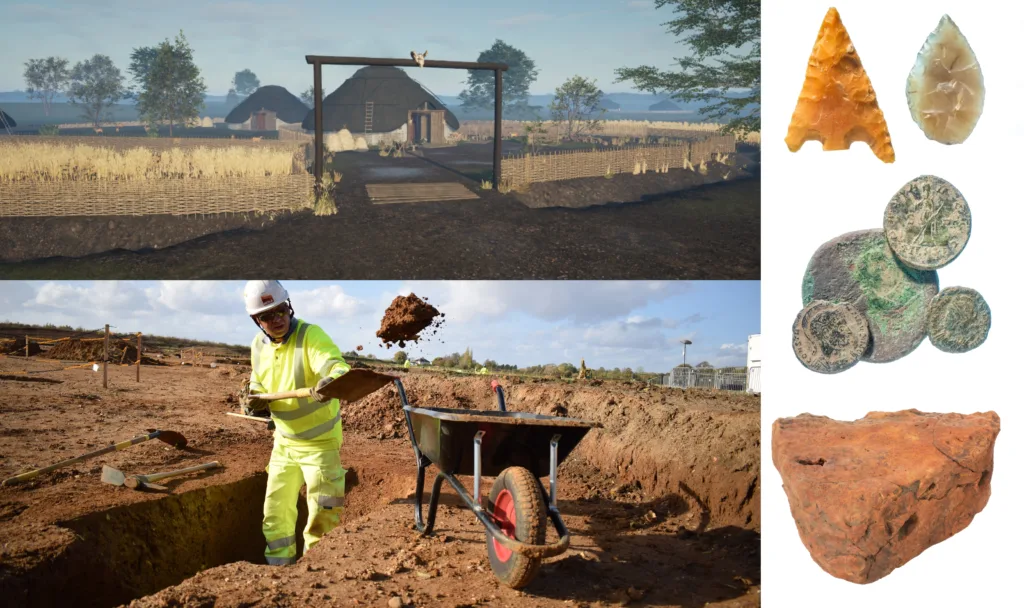
CGI reconstructions and finds from the A428 excavations
Discoveries include some of the largest Iron Age roundhouses ever found in Britain, evidence of early beer and wine making, and even the possible remains of an ancient feast.
Archaeological investigations on the project are set to conclude in Summer 2024.
Free event suitable for all the family | No pre-booking required | For enquiries, please email CommunityEngagement@mola.org.uk
Bedford
16th March 2024: 11am- 4pm
The Higgins, Bedford
Find out more at: A428 Archaeology Shop – Bedford | MOLA
St Neots
30th March 2024: 10:30am-4pm
Priory Centre, St Neots
Find out more at: A428 Archaeology Shop – St Neots | MOLA
About the A428 Black Cat to Caxton Gibbet Improvements
National Highways is upgrading the route between the Black Cat roundabout and Caxton Gibbet roundabout with a new 10-mile dual carriageway and a number of junction improvements.
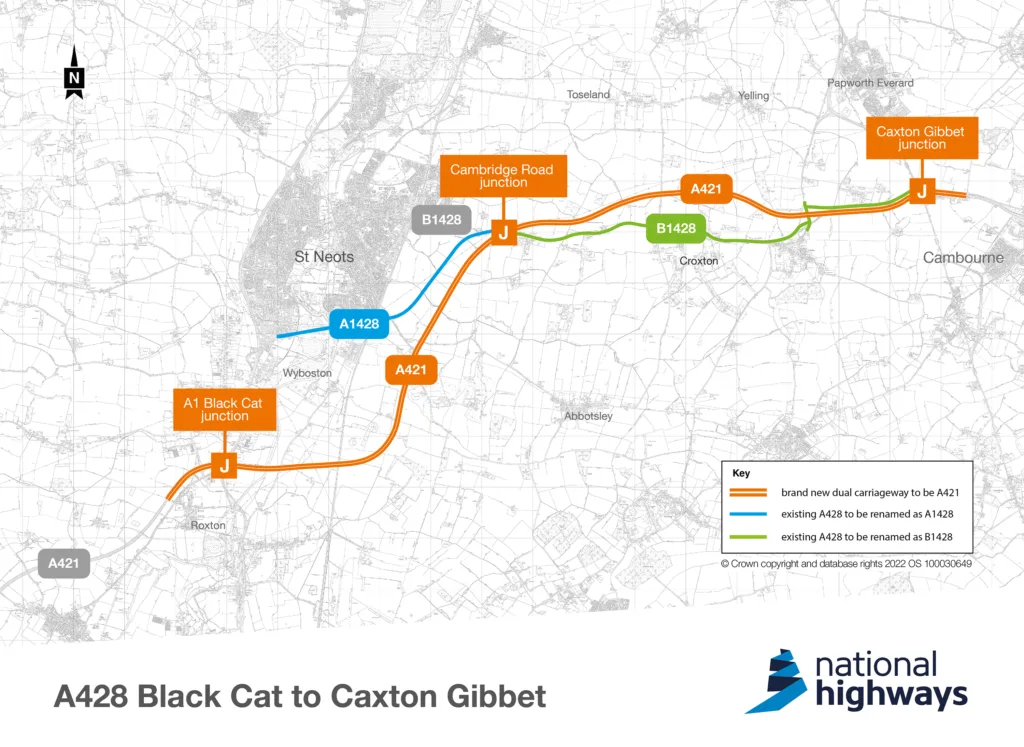
Route Map showing the proposed A428 scheme ©National Highways
The scheme will improve journeys between Milton Keynes and Cambridge, bringing communities together and supporting long term growth in the region. It will cut journey times by more than a third at peak times, saving up to ten minutes each way – and as much as 1.5 hours over a working week.
Find out more about the scheme on the National Highways website and follow the latest news on Twitter and Facebook
About MOLA
MOLA is an experienced and innovative archaeological and built heritage practice, Independent Research Organisation, and charity.
With over 350 staff working across England, MOLA has been providing independent, professional heritage advice and services for over 50 years.
Find out more at mola.org.uk, on Twitter, Facebook and LinkedIn.







































![Councillor visit to ESCC (L-R: Councillor Geoffrey Seef, County Councillor for St Neots The Eatons [local councillor]; Rob Ashwell, chairman of ESCC; Cllr Alex Bulat Vice-Chair of Cambridgeshire County Council's Communities, Social Mobility, and Inclusion Committee). Credit to Cambridgeshire County Council.](https://www.cambsnews.co.uk/wp-content/uploads/2024/07/Councillor-visit-to-ESCC_cropped-400x240.jpg)
![Councillor visit to ESCC (L-R: Councillor Geoffrey Seef, County Councillor for St Neots The Eatons [local councillor]; Rob Ashwell, chairman of ESCC; Cllr Alex Bulat Vice-Chair of Cambridgeshire County Council's Communities, Social Mobility, and Inclusion Committee). Credit to Cambridgeshire County Council.](https://www.cambsnews.co.uk/wp-content/uploads/2024/07/Councillor-visit-to-ESCC_cropped-80x80.jpg)